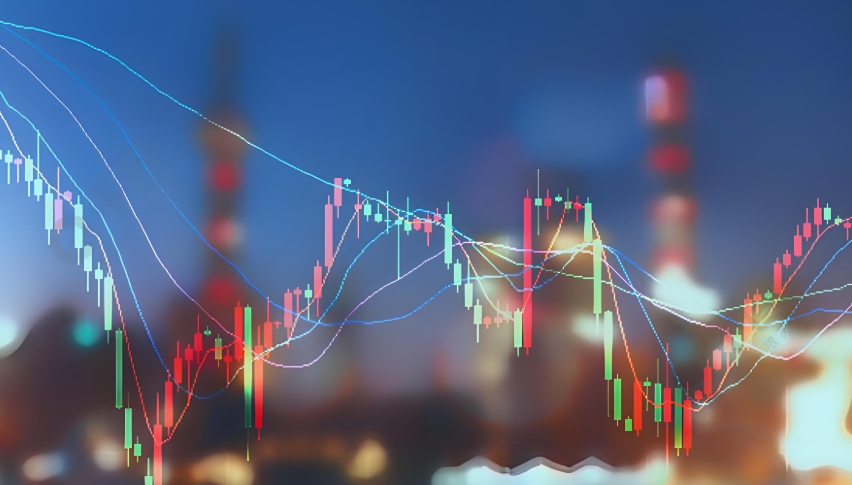As trading commenced on Friday, the atmosphere was one of mixed signals from the U.S. markets, with futures for the three major indexes showing some volatility. Conversely, Europe saw a generally positive trend in its major stock indices as markets responded to various economic indicators and corporate performances.
The previous day had brought a wave of red across U.S. stock markets, largely triggered by disappointing quarterly results from retail giant Walmart, whose shares plummeted by 6.5%. This dip wasn’t solely attributable to company-specific issues; broader concerns about inflation and the subsequent drop in Palantir's stock added to the pessimism in the markets.
Art Hogan, the Chief Market Strategist at B. Riley, offered a somewhat optimistic perspective on the prevailing panic. He suggested that the fear driving the market's downturn might be exaggerated, emphasizing that short-term market fluctuations are often led by emotional responses rather than fundamental economic factors. Hogan pointed to upcoming key economic data releases, including the latest Purchasing Managers' Index (PMI) and January's new home sales figures, as critical influencers that could help to stabilize or shift market attitudes by the end of the trading week.
In a noteworthy move, shares of UnitedHealth took a significant hit, dropping by 10% in pre-market trading, fueled by news that the U.S. Department of Justice had begun an investigation into the company's insurance billing practices. This development raised further concerns about regulatory scrutiny in the healthcare sector.

On a more positive note, Alibaba's stock surged by nearly 4% in pre-market trading after a remarkable 8% rise the previous day. The company's robust financial results announced on Thursday, combined with their commitment to investing heavily in artificial intelligence in the future, have excited investors.
This excitement was reflected across markets, as Alibaba's stock soared close to 15% in the Hong Kong market, contributing to a broader rally among technology stocks. The Hang Seng Index itself saw an impressive gain of 4%, reaching its highest closing level in nearly three years. Investors have responded favorably to Alibaba's strategic positioning in the burgeoning AI sector, recognizing the potential for growth and innovation that it represents.
Shifting focus to company-specific developments, notable news emerged regarding Apple. Renowned analyst Ming-Chi Kuo revealed that all models of the upcoming iPhone 17 line will be equipped with Wi-Fi chips developed in-house by Apple, a significant step away from reliance on Qualcomm's chips that have long been standard in the industry. This transition is expected to occur more rapidly than previously anticipated, and by the second half of 2025, all new iPhone 17 models will feature Apple's proprietary Wi-Fi technology. This change not only helps in reducing costs for Apple but also enhances the integration of its products, yielding a better user experience.
In the realm of artificial intelligence, OpenAI made headlines by expanding the availability of its AI agent tool, Operator, rolling it out to Pro users in several key countries, including Australia, Brazil, Canada, India, Japan, Singapore, South Korea, and the UK. OpenAI is still working towards launching Operator in the EU and other regions, showcasing its commitment to global accessibility in cutting-edge technological solutions.
Meanwhile, within its own ranks, Meta faced internal conflicts regarding its content moderation policies as changes instituted by CEO Mark Zuckerberg ignited unease among the oversight board. There are tensions regarding Zuckerberg's recent decision to terminate Meta's fact-checking initiatives in the U.S. and to relax its stance on hate speech globally. This shift has evoked a strong backlash among board members, with some expressing anger and concern over the sudden policy changes that some feel undermine the company's accountability structure.
In another noteworthy development, plans were reported about Tesla potentially investing in Nissan Motor Corporation, formulated by a Japanese consortium led by former Tesla board member Hiromichi Mizuno. This initiative has garnered the backing of former Japanese Prime Minister Yoshihide Suga and envisions creating an investor group in which Tesla would play a significant role, potentially including investment from Foxconn as well. This collaboration could signal a transformative investment strategy in the competitive automotive sector, particularly regarding electric vehicles.
On the collaborative front, Foxconn is exploring partnership possibilities with Japanese automotive giants Honda, Nissan, and Mitsubishi, indicating a strategic move towards leveraging synergies in the rapidly evolving automotive landscape. Stakeholders have been keen on building frameworks that can adapt to technological advancements and shifting market preferences, emphasizing the importance of alliances in fiscal sustainability.
Shifting focus to diversity efforts, Citigroup became the latest American corporation to retract its diversity objectives, signaling a potential retreat from commitments to foster a more inclusive workforce. In a memo, CEO Jane Fraser indicated that unless mandated, the bank would discontinue implementing representation targets and would not press for diverse candidate slates in hiring. With the acknowledgment that the environment is fast-changing, Fraser reassured employees that Citigroup would still advocate for the inclusion of diverse perspectives in its hiring processes.
Finally, steep investments are anticipated from South Korea's SK Group, which is poised to inject billions of dollars into Vietnam. The company announced plans for three significant projects centered around liquefied natural gas power generation, aiming to create a new energy hub focusing on AI, hydrogen, logistics, environmentally friendly agriculture, and innovation. This strategic positioning aims to harness Vietnam’s potential as a key player in the renewable energy landscape, reflecting a broader trend of increasing investment in sustainable and advanced technologies across the Southeast Asian region.
 July 31, 2025
July 31, 2025